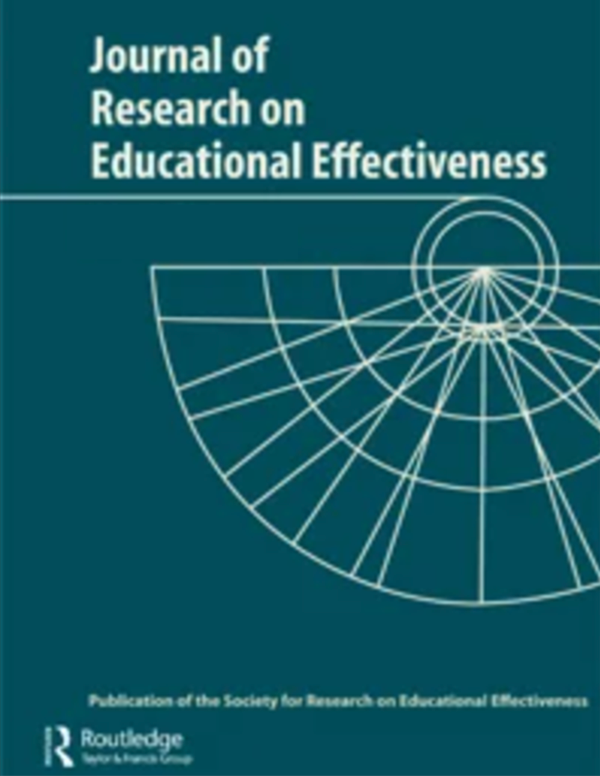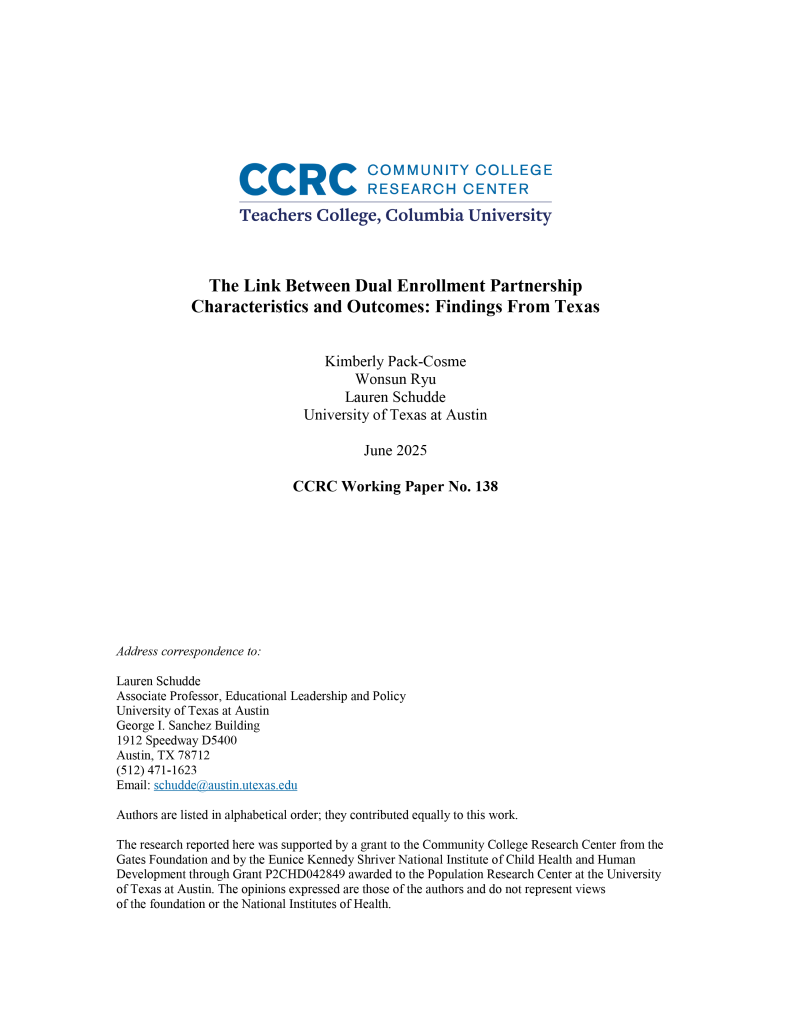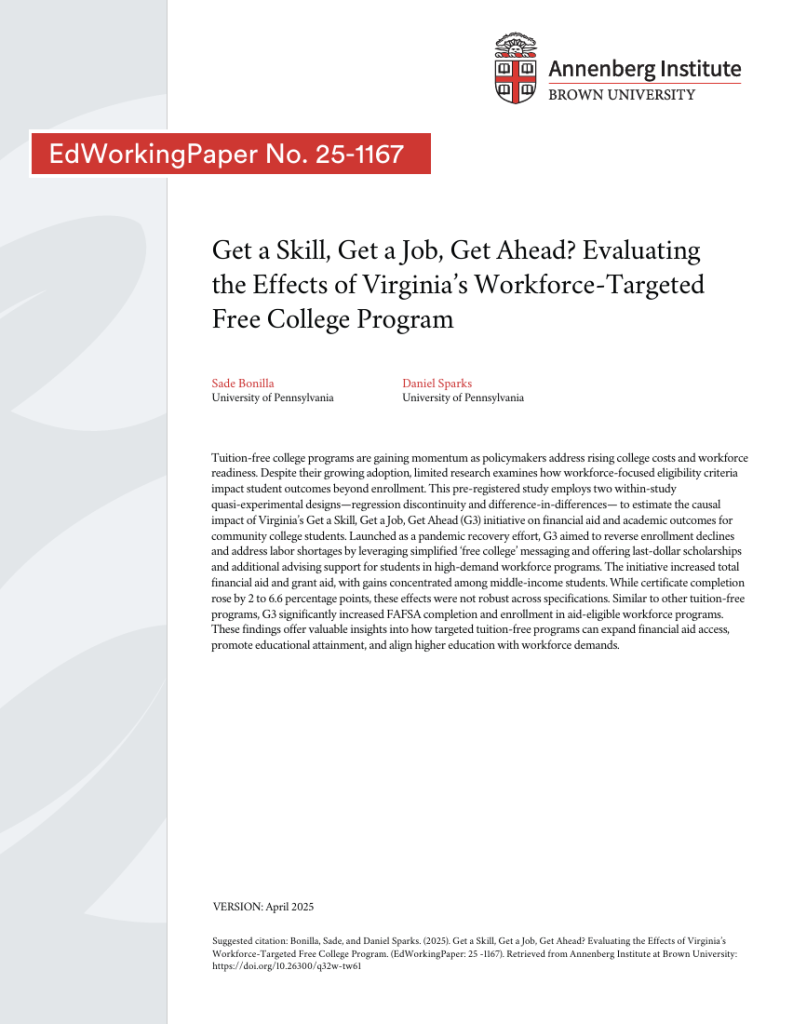“Waiving” Goodbye to Placement Testing: Broadening the Benefits of Dual Enrollment Through Statewide Policy

Using interview data from program leaders and statewide student data, this paper examines the implementation and estimates the effects of Ohio’s Innovative Programs, a policy aimed at expanding access to dual enrollment for underserved high school students.
The Long-Term Effectiveness of Multiple Measures Assessment: Evidence From a Randomized Controlled Trial

Using nine terms of outcomes data, this CAPR working paper presents findings from an impact study on multiple measures assessment at seven State University of New York (SUNY) community colleges.
The Link Between Dual Enrollment Partnership Characteristics and Outcomes: Findings From Texas

This working paper describes dual enrollment (DE) high school–college partnerships and estimates which DE structures and contexts predict aggregate DE course completion, college enrollment, and degree attainment.
Get a Skill, Get a Job, Get Ahead? Evaluating the Effects of Virginia’s Workforce-Targeted Free College Program

Using two quasi-experimental methods, this paper estimates the causal impact of Virginia’s Get a Skill, Get a Job, Get Ahead initiative on financial aid and academic outcomes of community college students.
Which Community College Awards Are Likely to Prepare Students for Post-Completion Success?

This report uses IPEDS and College Scorecard data to classify the credentials awarded by community colleges in 2022-23 and to assess which credentials are and are not likely to enable students to secure a living-wage job or transfer efficiently in a major.
